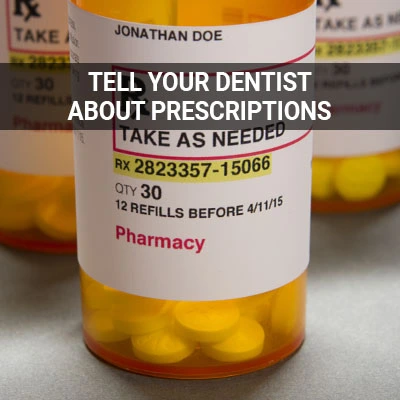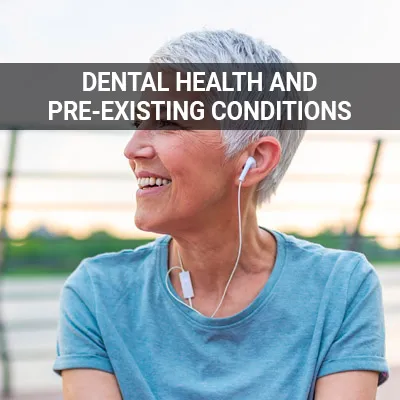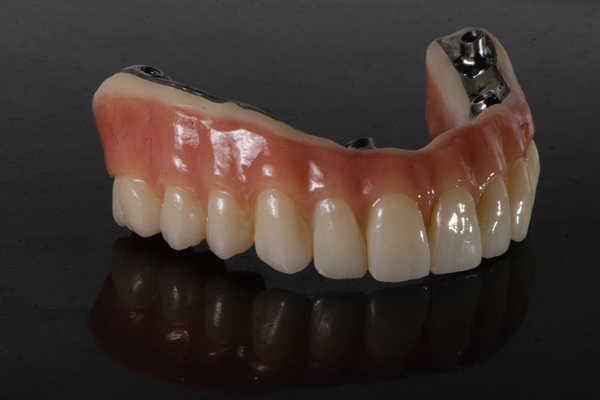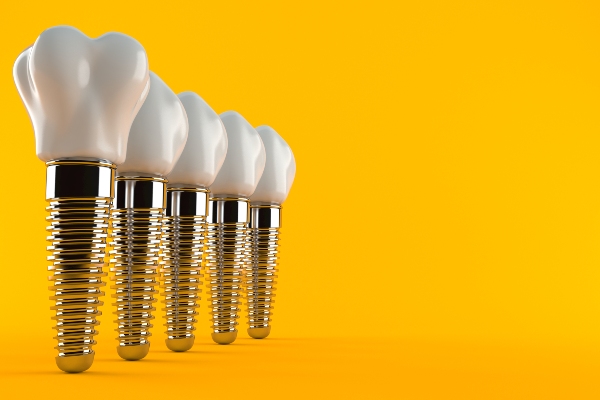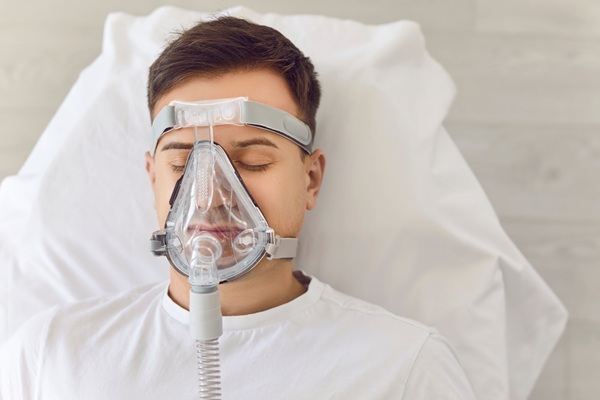Medications That Affect Oral Health Las Vegas, NV
It is important to consider the oral-systemic link and understand how medications you are taking can affect your oral health. When deciding whether or not to perform a procedure or prescribe medication, we take a couple of things into account. Though it is easy to think of the mouth as an isolated ecosystem, the medications you take to help regulate other body systems can play a role in your oral health.
To better understand this connection, our team at Hybrid Dental in Las Vegas is here to help. Call us at (702) 658-8008 to learn more about our services or schedule an appointment.
Cancer Medications
Cancer and chemotherapy medications can affect the teeth, gums, and jawbone. The American Dental Association (ADA) found that chemotherapy medications cause soft tissue reactions such as the development of oral sores, inflammation, and discoloration of soft tissues in the mouth. These reactions can lead to dry mouth syndrome, a condition that reduces the amount of saliva the mouth produces and can result in tissues becoming irritated and inflamed.
Dry mouth irritation can eventually lead to tooth decay, tooth loss, and gum disease as there is not enough remaining tissue in the gums. Drinking plenty of water and chewing sugarless gum can enhance saliva production and relieve some of the symptoms associated with dry mouth. Saliva substitutes are also effective in combating dry mouth.
“Dry mouth irritation can eventually lead to tooth decay, tooth loss, and gum disease as there is not enough remaining tissue in the gums.”
Behavior or Mood-Altering Drugs
Patients who are taking behavior or mood-altering medication may notice an impact on their oral health in more than one way. For instance, many medications that enhance mood can cause dry mouth (xerostomia) due to decreased saliva production. When we are producing a smaller amount of saliva, we become more vulnerable to developing conditions such as tooth decay or gum inflammation.
Some mood-altering medications can also cause side effects such as bruxism (tooth-grinding), which can negatively affect oral health. Additionally, many mood-altering drugs can cause fatigue or forgetfulness, which can create lapses in a person's dental care routine, particularly around bedtime hours. Patients who struggle with their oral health while taking medication for a mood-related condition should ask about how to manage side effects.
“When we are producing a smaller amount of saliva, we become more vulnerable to developing conditions such as tooth decay or gum inflammation.”
Medication for Diabetes
Diabetes medications can alter a patient's sense of taste, known as dysgeusia. According to WebMD, dysgeusia can make food taste different or cause a metallic, salty, or bitter taste in your mouth. Taste changes can lead to insufficient nutrition due to a lack of taste and appetite, which may increase oral conditions.
Periodontal disease is the most common dental disease affecting those living with diabetes, affecting nearly 22% of those diagnosed. With age, diabetic patients experience poor blood sugar control, increasing their risk of gum disease that can also affect their ability to control blood sugar levels. Gum problems make diabetes harder to control because the patient is more susceptible to infection but less able to fight it. Treating the gums, applying a meticulous oral regimen, and having regular professional deep-cleanings can help curb and even prevent oral conditions and stabilize blood sugar levels.
“Gum problems make diabetes harder to control because the patient is more susceptible to infection but less able to fight it.”
Check out what others are saying about our dental services on Yelp: Medications That Affect Oral Health in Las Vegas, NV
Regulatory Medications
Many other prescription medications that regulate chronic medical conditions can also impact patients' oral health.
Here are just a few examples:
- Cardiovascular medications: Medications such as calcium channel blockers can cause a condition known as gingival hyperplasia, or gingival enlargement, which can contribute to the development of gum disease.
- Seizure medications: One of the most notorious side effects of the seizure medication known as phenytoin (Dilantin) is also gingival hyperplasia.
- Thyroid medications: Because they can alter the production of thyroid hormones, thyroid medications can cause many changes to a patient’s oral health, including changes in saliva production, tongue size, and gum tissue.
- Osteoporosis medications: The bisphosphonate medication class, which treats osteoporosis, can cause a serious condition known as osteonecrosis of the jaw.
- Anticoagulant or antiplatelet medications: Medications that thin the blood, such as warfarin or clopidogrel, can cause bleeding of the gums, particularly when flossing.
Our team is skilled in performing a complete assessment of patients' oral health, taking into account the role that prescription medications play in the symptoms they are experiencing.
“Medications that are used to thin the blood, such as warfarin or clopidogrel, can cause bleeding of the gums, particularly when flossing.”
Questions Answered on This Page
Q. How do cancer medications affect oral health?
Q. How is diabetes affected by oral hygiene?
Q. How can I maintain good oral health while taking medication?
Q. How can behavior or mood-altering drugs affect oral health?
Q. How do regulatory medications affect oral health?
People Also Ask
Q. What is the importance of a healthy mouth baseline?
Q. How does oral health affect the gut and immune system?
Q. Why is preventative care important? How can it save you money?
Q. What should a home oral care routine include?
Keeping Mouth Healthy While on Medication
It is important to know and understand the side effects resulting from a particular medication and how to reduce or eliminate them in an effort to maintain good oral health. Taking appropriate hygienic measures also decreases many general health symptoms as much of the bacteria in the mouth is cleared before entering the body.
Depending on the health condition, complete health dentists can offer insights on how to relieve dry mouth, enlarged gums, abnormal bleeding, taste changes, tissue reactions, bone loss, discoloration, and thrush infection. In most cases, patients cannot decide against taking medications, but dentists may lower their dosage or alter the medication to suit their oral needs. Patients should seek medical and dental advice regarding medications while also maintaining a proper oral hygiene regimen.
“In most cases, patients cannot decide against taking medications, but dentists may lower their dosage or alter the medication to suit their oral needs.”
Frequently Asked Questions About Medications Linked to Dental Health
Q. What can I do to improve my oral health while taking psychotropic medications?
A. Once you are aware of the connection between your medications and your oral health, you can make changes to your routine that can positively impact your dental condition. According to the Oral Health Foundation, changes as simple as reducing your sugar intake, and brushing with fluoride toothpaste, can help mitigate the impact of your medications.
Q. What kinds of heart medications can cause changes in my gum tissue?
A. The most common cardiovascular medication that contributes to gum changes is known as a calcium channel blocker. Examples of calcium channel blockers include verapamil, amlodipine, and nifedipine. If you are noticing changes in your gums from a medication, your dentist may be able to discuss an alternative medication with your physician.
Q. What types of medications affect oral health?
A. Many different types of medications affect the oral cavity. It also largely depends on the form and dosage. Among them are antihistamines, decongestants, painkillers, high blood pressure medications, muscle relaxants, drugs for urinary incontinence, Parkinson's disease medications, and antidepressants.
Q. What can my dentist do if I am taking a medicine that affects my oral health?
A. Your total health dentist considers your oral-systemic connection when conducting assessments of your oral health. If you are taking a medicine that impacts your oral health, your dentist may be the first clinician to identify this. If we do so, we will work with your prescribing physician to make changes or adjustments as needed. We can also consider medications, such as saliva substitutes to help with symptoms.
Q. Does the dentist work with primary care doctors to alter medications?
A. Patients who require treatment may need to alter their medications in order to undergo the procedure. We can communicate with your doctor to suggest certain medications that are safer or measures to take until you recover from the procedure. We can also work with you on questions to ask your doctor about oral medications.
Dental Terminology
Learn More Today
If you are interested in better understanding complete health dentistry and effects of medication, call us at 702-658-8008 to set up an appointment.
Helpful Related Links
- American Dental Association (ADA). Glossary of Dental Clinical Terms. 2024
About our business and website security
- Hybrid Dental was established in 2012.
- We accept the following payment methods: American Express, Cash, Check, Discover, MasterCard, and Visa
- We serve patients from the following counties: Clark County and Nye County
- We serve patients from the following cities: Las Vegas, Summerlin, North Las Vegas, Spring Valley, Paradise, Henderson, Centennial Hills, Mt Charleston, Enterprise and Pahrump
- National Provider Identifier Database (1306143847). View NPI Registry Information
- Healthgrades. View Background Information and Reviews
- Norton Safe Web. View Details
- Trend Micro Site Safety Center. View Details
Back to top of Medications That Affect Oral Health



